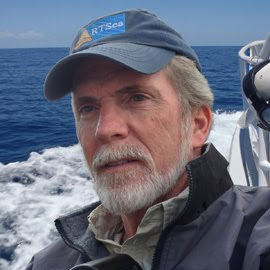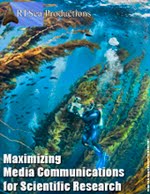 Over the past few years, scientists and government agencies have reported changes in the Arctic sea ice. Monitoring its annual undulations, they have seen marked reductions in the thickness and overall extant of the floating ice pack. But to determine whether this is a minor fluctuation or an actual alarming trend, a baseline is needed - one that extends farther beyond the time frame that researchers have worked within.
Over the past few years, scientists and government agencies have reported changes in the Arctic sea ice. Monitoring its annual undulations, they have seen marked reductions in the thickness and overall extant of the floating ice pack. But to determine whether this is a minor fluctuation or an actual alarming trend, a baseline is needed - one that extends farther beyond the time frame that researchers have worked within.For that data, scientists have turned to what some ocean conservationists would consider an unlikely source: whalers.
Specifically, whalers of the late 1800's, when the industry was in full swing and whaling vessels were plying the Arctic seas in search of whales to meet the Industrial Revolution's demand for whale oil. By charting the range and condition of Arctic sea ice for the purpose of determining safe routes for their ships, whalers unintentionally became early environmentalists, providing detailed reports that scientists can use today to help establish that needed baseline for assessing long-term trends and conditions. Talk about unlikely bedfellows.
 Douglas Mair, environmental expert from Scotland's Aberdeen University, is preparing to deliver a series of talks at the university on the whalers' contribution to Arctic climate science. As reported in Scotland's The Press and Journal, he said, “They [whalers] recorded a lot of their observations about sea ice, or frozen oceans, in the Arctic. They were simply trying to find a safe way through the ice. There was nothing scientific about it. But their notes show us how the Arctic waters have changed over the decades. There has been a dramatic decline in sea ice."
Douglas Mair, environmental expert from Scotland's Aberdeen University, is preparing to deliver a series of talks at the university on the whalers' contribution to Arctic climate science. As reported in Scotland's The Press and Journal, he said, “They [whalers] recorded a lot of their observations about sea ice, or frozen oceans, in the Arctic. They were simply trying to find a safe way through the ice. There was nothing scientific about it. But their notes show us how the Arctic waters have changed over the decades. There has been a dramatic decline in sea ice."Another rather unlikely source for past Arctic ice data also comes from Russian studies done in the 60's involving suitable locations for hydrogen bomb tests. Again, ironic that out of the era of "mutually assured destruction" we find something that provides evidence for environmentalists to show the importance of climate change and why we must address it as the world-changing event that it is.
From one mutually assured destruction scenario to another. We seemed to have steered away from one; now let's chart a new course away from the other.
Read more about it in The Press and Journal.

















No comments:
Post a Comment